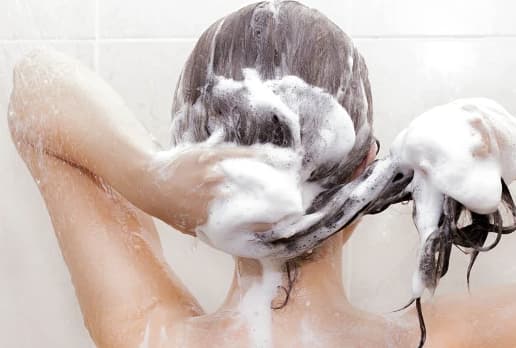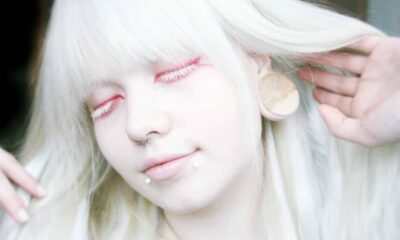Expert Advice
Can I Wash Hair on Amavasya in Hindu Culture
Amavasya, the new moon day, holds great significance in Hindu culture. It is a day of spiritual observance and cultural practices. One such belief is the avoidance of head baths on Amavasya. Some People believe that it is inauspicious to wash their hair on Amavasya, while others do not. If you are not sure about this, it’s better to consult with a Hindu priest or elder’s.
In this article, we will delve into the question of whether you can do your hair wash on Amavasya as per Hindu culture.
Can I Wash Hair on Amavasya?

We will explore the reasons behind this practice, its cultural significance, and the perceived consequences associated with taking a head bath on this auspicious day.
Can You Do Your Hair Wash on Amavasya in Hindu Culture?
In Hindu culture, the practice of abstaining from head baths on Amavasya is widely observed. It is believed that the new moon day is associated with negative energies and influences. As a result, people refrain from activities that involve purification, such as hair washing, to maintain spiritual sanctity.
The belief behind this practice is deeply rooted in cultural and religious traditions. It is believed that by avoiding head baths on Amavasya, one can maintain a balance between positive and negative energies, fostering spiritual growth and inner harmony.
The Significance of Avoiding Head Baths on Amavasya:
As per Hindu culture, taking a head bath on Amavasya is believed to disrupt the cosmic energy flow and create an imbalance in the body. Its belief that if you did bath it will attract negative energies and can have adverse effects on an individual’s life and well-being.
While these beliefs may vary among different Hindu communities, some common reasons behind avoiding head baths on Amavasya include:
- Purification Rituals: Amavasya is considered a time for purification, fasting, and prayer. By refraining from head baths, individuals aim to maintain spiritual purity and engage in introspection.
- Lunar Influences: In Hinduism, the moon is associated with the mind and emotions. It is believed that the absence of the moon’s illumination on Amavasya signifies a time of introspection and self-reflection, hence the avoidance of activities like hair washing.
- Tradition and Ancestral Practices: Hindu culture places great importance on honoring and following ancestral customs. The practice of avoiding head baths on Amavasya is often passed down through generations as a way to respect and preserve these traditions. Also read: How to Wash Hair After Applying Henna?
Perceived Consequences of Taking a Head Bath on Amavasya:
According to Hindu beliefs, taking a head bath on Amavasya may result in various consequences, including:
- Disruption of Energy Flow: It is believed that cleansing rituals, such as head baths, can disturb the natural energy flow on Amavasya, leading to imbalances in one’s life.
- Attracting Negative Energies: Taking a head bath on Amavasya is thought to invite negative energies into one’s life, hindering progress and prosperity.
- Impact on Spiritual Practices: It is believed that the act of hair washing on Amavasya can undermine the efficacy of spiritual practices and rituals performed on this day.
It is important to note that these beliefs are rooted in cultural and religious traditions and may not have scientific evidence to support them.
Disclaimer:
This article has been written by us by using Google search for research. We are not against the beliefs and rules of any religion. We do not want to hurt any feelings of any religion.
Also Know: Can We Wash Hair on Ekadashi
Conclusion:
The belief that one should avoid head baths on Amavasya is steeped in cultural and religious traditions. However, if we see, there is no scientific evidence to support this belief that taking a head bath on this day has any negative consequences.
-

 Expert Advice2 years ago
Expert Advice2 years agoCan Albinos Dye Their Hair – Let’s Find Out
-

 Expert Advice2 years ago
Expert Advice2 years agoHow to Tone Down Hair Color That is Too Bright? – 8 Super Simple Ways
-

 Expert Advice2 years ago
Expert Advice2 years agoT Bar Highlights
-

 How To2 years ago
How To2 years agoChocolate Cherry Hair Color – How to Get Exact Shade?
-

 Expert Advice2 years ago
Expert Advice2 years agoWhy Do Salons Wash Your Hair After Coloring?
-

 Expert Advice2 years ago
Expert Advice2 years agoCan You Dye Synthetic Hair With Semi Permanent? Let’s Find Out
-

 Hair Styles12 months ago
Hair Styles12 months agoWash and Wear Haircuts for Over 60
-

 Expert Advice2 years ago
Expert Advice2 years agoHalf Green Half Black Hair – Methods to Get This Look
